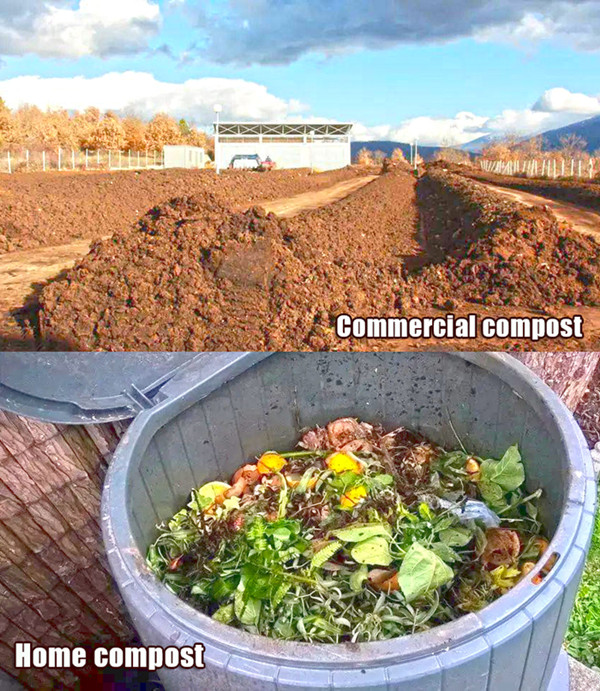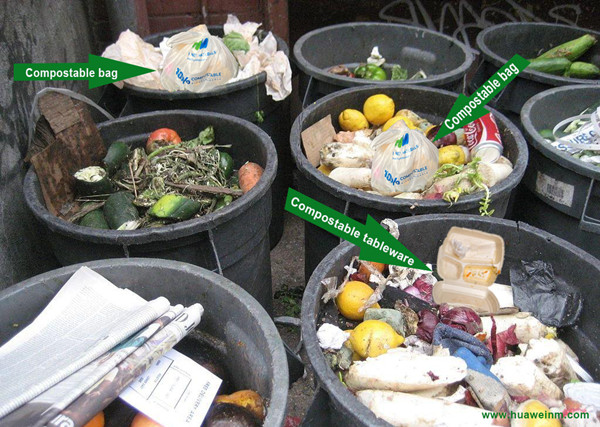Commercial compostable products can be processed in the compost bin at home. Composting is a process that utilizes biological decomposition to convert organic matter into fertilizer, suitable for a variety of materials including commercial compostable products. One of the benefits of home composting is that it can quickly produce fertilizer without any odor, thanks to some specific composting methods, such as using high-temperature composting technology, which can achieve the effect of high-temperature and efficient homemade composting without adding EM bacteria. In addition, composting can not only improve soil quality and promote plant growth, but also effectively treat kitchen waste by converting it into valuable organic fertilizers, thereby reducing landfill waste and being environmentally friendly.

In the process of home composting, commercial compostable products can decompose together with other organic matter and ultimately transform into nutrient rich compost for use in gardens or farmland for fertilization. This approach is not only environmentally friendly, but also effectively utilizes resources and reduces waste. There are various methods for home made composting boxes, including the use of foam boxes, pit composting, etc. These methods are simple and easy to operate and suitable for home operation.
In short, commercial compostable products can be decomposed together with other organic matter in household composting bins and converted into fertilizers that are beneficial for plant growth. This is an environmentally friendly and economical approach that helps reduce waste and improve soil quality.

Composting at home is an environmentally friendly and economical method for treating organic waste. By decomposing organic matter, nutrient rich fertilizers are formed, which can reduce waste and provide nutrition for plants. Here are several methods for composting at home:
Deep burial method: suitable for friends who have a botanical garden or courtyard at home. Bury the materials deep in the soil and wait for them to decompose into fertilizer, slowly seeping into the soil to provide nutrients for the plants. This method is low-cost, but it takes a long time to compost, occupies a large area, and requires regular flipping to accelerate the composting process.
Bottle and bucket method: suitable for potted enthusiasts with small fertilizer requirements. Use plastic bottles or buckets, add compost materials layer by layer, invert them in the soil or seal them with waste packaging bags, and wait for the contents to turn black and the volume to decrease before use. This method is simple and easy to implement, but it is recommended to dilute it before use when the fertility is high to avoid fertilizer damage.
DIY Creative Composting: Use various creative methods for composting, such as double-layer drum shaped composting bins, garbage bin composting, tray covered composting bins, wire mesh composting bins, vertical stacking composting bins, cement block composting bins, earthworm composting bins, etc. These methods have their own characteristics, and suitable composting methods can be selected according to individual needs and space.
Indoor kitchen waste composting: For indoor planting enthusiasts who do not have a courtyard or garden, indoor kitchen waste composting methods can be used. This method does not require earthworms and relies on microorganisms and insects in the soil for decomposition. Bury kitchen waste and plant residues deep in the soil, cover with soil and lid, and wait for them to naturally decompose. Although this method is slow, it does not require frequent flipping or management.
Using discarded flower pots to make compost: Use discarded flower pots or other containers, add an appropriate amount of water and maintain a moist environment, and chop the compost material to accelerate the decomposition rate. This method is suitable for people with some gardening experience, who need to pay attention to maintaining appropriate moisture and ventilation.
In summary, there are various methods for home composting, and suitable composting methods can be selected based on individual circumstances and needs. Regardless of the method, it is important to maintain appropriate moisture, ventilation, and proper agitation to promote the decomposition and conversion of organic matter into fertilizer.
